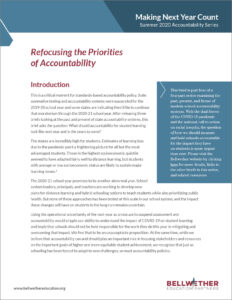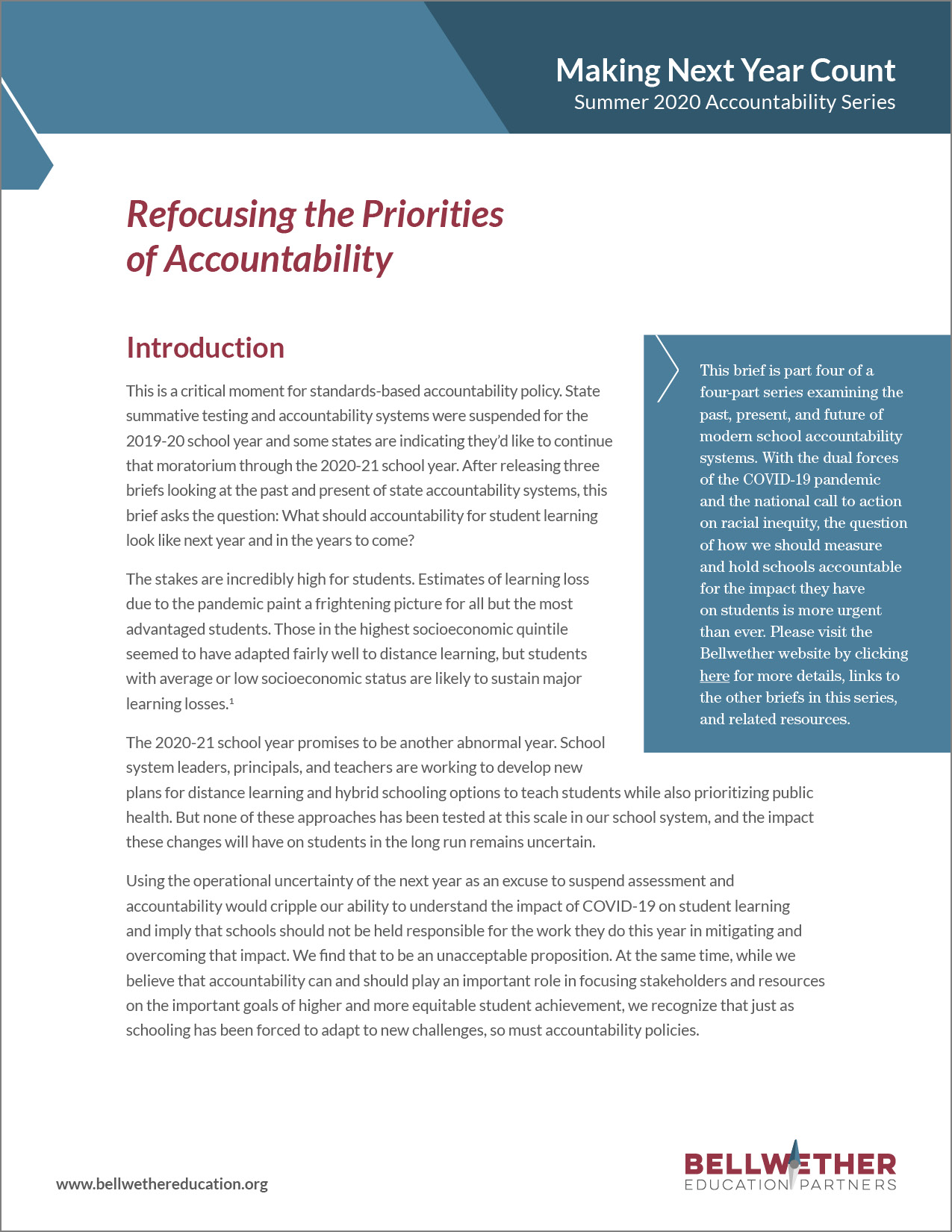This fall is turning into a slow-motion disaster for students and families. Many districts planned to implement some form of hybrid learning to start the school year, only to have those plans scuttled in the aftermath of rising COVID-19 cases across the nation. On top of the logistical challenge of shifting to remote learning on a short timeline, families and educators are making these changes without a shared understanding of students’ academic needs since state assessments were cancelled this past spring. If it wasn’t clear before, it should be painfully obvious now: our education system is in crisis.
This moment calls for significant changes in how school systems meet the needs of students, both during the current crisis and once we return to something that resembles “normal.” Assessment and accountability policies are no exception. For too long, these systems have been asked to serve multiple purposes, from identifying schools for intervention, to providing data to inform instruction, to informing parental choice.
In a new brief, my coauthors and I argue that now is the time to clarify and refocus the priorities of school accountability policy. In Refocusing the Priorities of Accountability, we explore three different scenarios where policymakers successfully limit accountability systems to one primary function:
- As a means for policymakers to intervene in schools
- As a tool for schools to improve instruction
- As a platform to inform parents as they engage with their school communities and/or make school choice decisions
For each of these single-priority approaches to accountability, we explain how it could work in practice and articulate what trade-offs policymakers would have to make to adopt that approach.
While an accountability system could conceivably address multiple priorities, it is extremely difficult for any system to serve all three purposes well. If states continue to try to make accountability systems be all things to all stakeholders, they are likely to reproduce the same shortcomings they see today. This means that as policymakers consider how to adapt accountability systems over the short- and long-term, they should answer a very important question: which is the top priority for their accountability system? And just as importantly, what won’t they ask their accountability system to solve?
Policymakers in different states can thoughtfully come to different conclusions. But if accountability systems are to continue to serve as mechanisms to drive higher and more equitable student outcomes, they must adapt to the new reality we all face.
Read a summary of our takeaways for:
